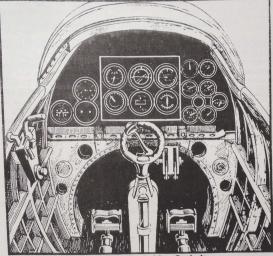During the 1940s, members of the Psychological Laboratory in the University of Cambridge worked closely with the Royal Air Force on problems connected with pilot error and pilot fatigue. This work gave rise to the celebrated Cambridge Cockpit experiments. These experiments are well known but much more remains to be said about their origins and implications. I place the Cambridge Cockpit work in a comparative framework by locating similar work conducted at that time by German and American applied psychologists. Preliminary study suggests that different conclusions were reached by the respective national groups regarding the nature of fatigue and pilot error, but this impression needs corroboration and further study. If national groups did indeed arrive at different conclusions, this throws into immediate prominence the question of the causes of the divergence. Did the difference in understanding arise from a difference in the selection of the phenomena under study? or from different definitions of the problems confronted by pilots? or from the experimental techniques used? or from the divergent theoretical traditions drawn on in the interpretation of results and the design of the experiments? This project studies the German-language primary and secondary literature and relevant archival material to shed light on the suspected differences.

D. Russell Davis, Pilot Error: Some Laboratory Experiments, London (His Majesty's Stationery Office, 1948)
Project
(2014-2016)
